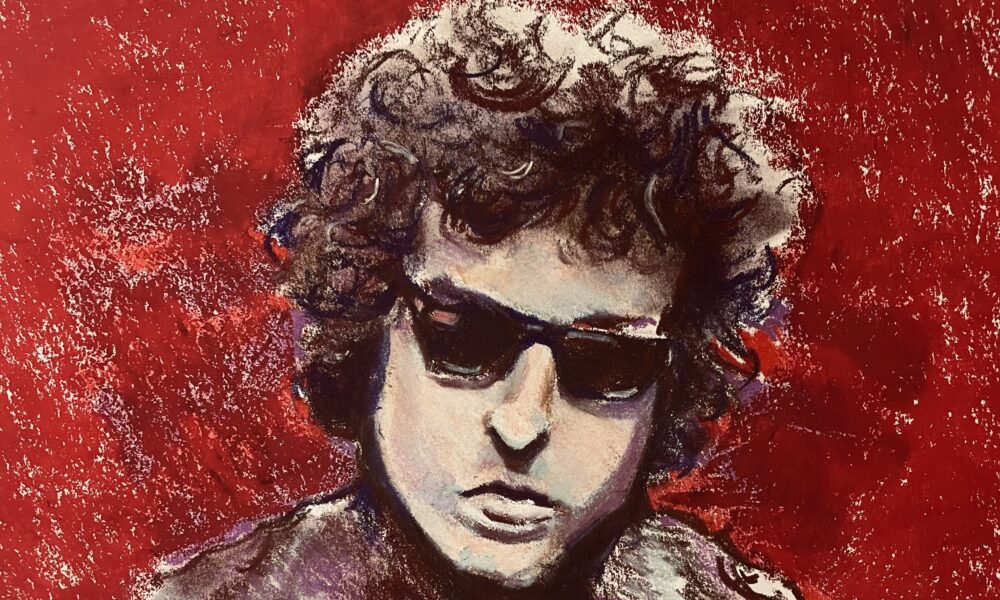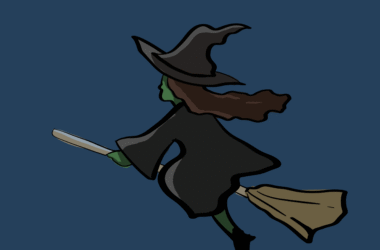My expectations were high when I sat down to watch A Complete Unknown, the Bob Dylan biopic directed by James Mangold and starring Timothée Chalamet. Dylan’s career is one of the most monumental in music history, and Dylan himself—with his nasally voice, stoic affect, and famous dexterity on the guitar—is singular in every regard. But by the time I left the theatre, Chalamet, along with his co-stars Monica Barbaro, Edward Norton, and Elle Fanning, had exceeded every expectation.
The film follows Dylan (Chalamet) from his arrival in New York City in 1961 to his controversial performance at the 1965 Newport Folk Festival. It portrays his first small gigs at the Gaslight Cafe in Greenwich Village from which his fame quickly sprung. Woven through his rise to stardom are his romances with Sylvie Russo—a stand-in name for the real-life Suze Rotolo (Elle Fanning)—and musician Joan Baez (Monica Barbaro), his friendship with fellow folk musician Pete Seeger (Edward Norton), and his explosive fame in the folk world—and eventually beyond it.
If the saying “show, don’t tell” applies to films as well as writing, then Mangold’s interpretation of Dylan’s early career should be the textbook case. Each actor so wholly embodies their character that they could have spent the entire film drinking a cup of coffee and one still could have seen clearly into Dylan, Baez, or Seeger’s souls. While Chalamet’s performance embodied Dylan’s genius, it also brought to light his human flaws and pretension. “You know,” Baez says to Dylan in his bedroom one morning, “you’re kind of an asshole.” Dylan only chuckles.
Mangold synthesized Dylan’s rise to stardom, his brooding frustration with the folk scene, and his reluctance towards emotional vulnerability in a tight, seamless narrative fuelled by the characters themselves, and illustrated through moments whose beauty is in their simplicity. One evening, Dylan runs into a man named Bob Neuwirth (Will Harrison) who invites him to his band’s gig downtown. Watching the energetic Neuwirth play electric guitar from the corner of the Irish bar, Dylan begins to crack a rare smile—a moment cut short when the blonde woman in front of him turns and screams, “IT’S BOB DYLAN,” and chases him out of the bar. That night would spark Dylan’s signature rebellion against folk music and inclination towards electric guitar, culminating in the film’s climactic Newport Folk Festival performance.
Amidst the effortlessly evolving plot, the artfully chosen settings in Greenwich Village, the detailed recreation of Newport, and the beautifully unadorned cinematography, it is Chalamet’s musical talent that is the most striking. Dylan is known for his swinging, nasal voice and his clear finger-picking control of the acoustic guitar. Where many biopics would use original tracks over which the actor would lipsync, Chalamet sang every note of the film himself. But, most impressive of all, is that he performed the songs live on set. To even approach the mechanics of Dylan’s musicianship is impressive enough, but to do so, as Chalamet did, with complete control—enough to take creative liberties himself that one can easily imagine Dylan might have made—is almost incomprehensible.
Between grasping at soon-to-be-famous lyrics on a hotel notepad in the middle of the night, or playing simultaneous guitar and harmonica in front of 10,000 people at the Newport Film Festival, Chalamet literally did not miss a beat. His co-stars didn’t either; the talent of Norton and Barbado alongside Chalamet came together in moments of palpable joy on screen—like when Barbado sings ‘Blowin’ in the Wind’ for the first time with Dylan on his bed, harmonizing with the soon-to-be-famous chorus, or when Seeger joins Dylan’s acoustic guitar with his banjo amidst high-end party-goers eager to hear Dylan play.
A Complete Unknown is a masterpiece of a love letter to Dylan’s career, to the 1960s, to political and musical revolution, and to raw genius.







